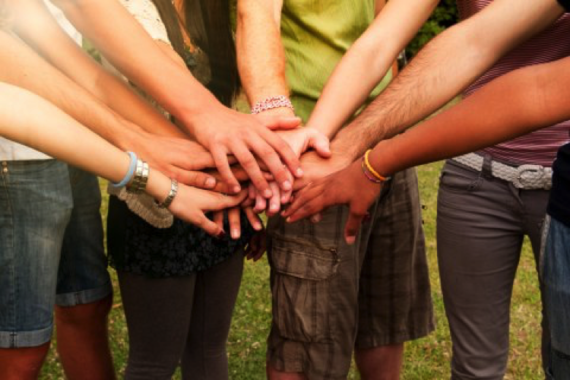Ballroom with floral carpet. Buffet catered lunch. Older folks talking bingo at their tables. Reciting of the mission statement in unison. Pledging to the flag.
Those snippets take me straight to a gathering at the Lodge circa 1954. But do not be fooled. Those are scenes from a Rotary meeting I recently attended here in Miami. Not surprisingly, and among other things, I was the youngest person there.
It's no secret that service clubs like Rotary International, Kiwanis and the Lion's Clubs of America have seen their membership decline in the last decades. Meetings like the one I attended are not only becoming archaic in form but also in reach across generations.
Our limited budgets and desire for innovation in giving reflects why my generation is mostly left out of traditional philanthropic circles. But does this really mean, as Robert Putnam alluded, that millennials are "bowling alone?"
My time professionally navigating the world of philanthropy tells me otherwise. I'd say, rather, that we're reinventing the game.
Millennials connect and contribute in much different ways than the gala-going, bequest-donating, luncheon-holding philanthropists of generations past. And because of that, we are challenging organizations to rethink how they talk about and engage young philanthropists in their work.
Generally, millennials are skeptical of large institutions. This makes us less likely to give to organizations. Rather, we prefer supporting causes. At the top of our list are children's charities followed by places of worship and health-related causes. Given the cause-first-organization-second focus, Gen Y is most likely to contribute to entities that inspire and engage our interests, supporting research that shows peers have more influence on millennials' giving decisions than do ties to an institution or its representatives.
A notable characteristic of Gen Y is that we're all about experiences. Young donors place deep value on experiencing philanthropy as opposed to just giving to a charity. To the extent possible, we seek to support our chosen cause with more than our treasure, but our time and talents, too. This helps explain why volunteerism is booming among millennials. In 2014, 70 percent of the more than 2,500 millennial employees and managers surveyed spent at least an hour volunteering, according to the 2015 Millennial Impact Report by the research group Achieve.
Additionally, millennial philanthropists demand more transparency when giving than our more seasoned counterparts. Gen Y do-gooders want detailed information about where their funds are going before clicking the donate button.
To get a first-hand perspective on these trends, I caught up with Cristina Mas, Miami millennial, Marketing Director for Colliers International, and founder of Pause for a Cause, a once-a-year event where Miami young professionals raise money for over 40 causes in our community.
Q: How do philanthropic millennials engage with the causes they care about differently from older generations?
Mas: Technology has changed everything. Take the ALS Ice Bucket Challenge for example. That campaign went viral because of social media posts. Social media has changed the way organizations need to think about their causes. It's not just hand written letters and checks. Things need to be mobile friendly, you need a hashtag for your organization and its larger events.
I absolutely agree. And that falls in line with our preference for events that fall outside the realm of traditional charity, which we then promote and share online with our peers.
Q: What are the biggest turn offs for millennials when deciding where to invest their time, talents and treasures?
Mas: We want to feel like our donation -- no matter how big or small -- matters. So many fundraising officers don't bother to engage us because we can't name a wing at our alma mater...yet. But we are your future board members, your future giving circles and all we want is to know that our engagement and participation isn't taken for granted. We want the opportunity to give back, get our hands dirty and network with the board members of the groups we're involved with so that we can advance professionally.
Not being taken for granted. What a concept!
Cristina may be right that we can't name wings just yet, but we are giving at impressive rates. If you look at the numbers, a hefty 84 percent of millennials made a charitable donation in 2014. And on average, millennials give an annual gift of $481, according to Blackbaud's Next Generation of American Giving report. Considering millennials have been dubbed Generation Debt, that's a telling statistic about our willingness to give. Moreover, by 2017, millennials will have the largest buying power in the U.S.
"Tell us how a small gift can make a big difference for your organization" is one of the observations that most struck me from my chat with Cristina. Above all, millennial philanthropists want to feel valued and included. We want a seat at the table and a chance to show you that we're not as selfish and we're much more giving than you think.

